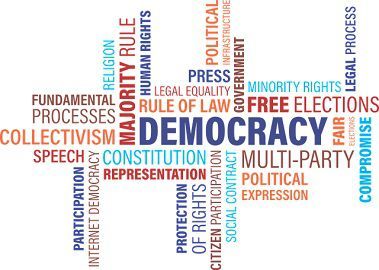2 hours ago
Latest Updates
Featured Posts
Get in Touch
Location:
123 Innovation Street
Tech District, CA 94105
123 Innovation Street
Tech District, CA 94105
Email:
[email protected]
[email protected]
Phone:
+1 (234) 567-890
+1 (234) 567-890
What is Direct Democracy: A Complete Guide
What is Direct Democracy
Direct democracy is a form of governance where citizens directly participate in decision-making processes rather than electing representatives to do so on their behalf. In direct democracy, individuals have the authority to shape policies, pass laws, and make important decisions through popular vote. This democratic model stands in contrast to representative democracy, where citizens elect officials to represent their interests in governmental affairs.Principles of Direct Democracy
At its core, direct democracy embodies principles of citizen empowerment and active participation in political processes. Unlike representative democracy, where elected officials hold decision-making power, direct democracy ensures that the general populace has a direct say in matters affecting their lives. This principle underscores the belief that sovereignty ultimately resides with the people. Read about What are the 4 Types of PoliticsForms of Direct Democracy
Direct democracy manifests in various forms, including referendums, initiatives, and recalls. Referendums allow citizens to vote on specific issues or proposed legislation directly. Initiatives enable citizens to propose new laws or amend existing ones through petitions and subsequent popular votes. Recalls provide mechanisms for voters to remove elected officials from office before the end of their terms. [caption id="" align="aligncenter" width="335"] Direct Democracy[/caption]
Direct Democracy[/caption]
Advantages of Direct Democracy
One of the primary advantages of direct democracy is its promotion of increased citizen involvement in the political process. By directly participating in decision-making, individuals feel a greater sense of ownership over governmental policies and initiatives. Furthermore, direct democracy enhances transparency and accountability by fostering open dialogue and scrutiny of public decisions.Challenges of Direct Democracy
However, direct democracy also faces significant challenges. Implementing direct democratic processes on a large scale can be logistically complex and resource-intensive. Moreover, direct democracy systems are susceptible to the potential tyranny of the majority, where minority voices may be marginalized or overlooked in decision-making processes. Discover about What are the 16 Concepts of Global PoliticsExamples of Direct Democracy in Practice
Switzerland serves as a notable example of successful direct democracy, where citizens regularly participate in referendums and popular votes to shape national policies. Similarly, certain states in the United States, such as California, have incorporated direct democratic mechanisms into their governance structures. https://www.youtube.com/watch?v=y5W45Va0cPE&pp=ygUYV2hhdCBpcyBEaXJlY3QgRGVtb2NyYWN5Comparison with Representative Democracy
In comparing direct democracy with representative democracy, it becomes evident that each system has its unique features and advantages. While direct democracy emphasizes direct citizen participation, representative democracy prioritizes the election of officials to represent constituents' interests. Both models possess strengths and weaknesses, which vary based on contextual factors and societal preferences.Criticism and Debates Surrounding Direct Democracy
Critics of direct democracy argue that it may lead to governance by elites or special interest groups, as well as potential manipulation by populist sentiments. Debates surrounding direct democracy often center on the balance between citizen empowerment and the need for informed decision-making processes.The Future of Direct Democracy
The future of direct democracy is influenced by technological advancements and evolving global trends. Digital platforms and online voting systems offer new opportunities for enhancing citizen engagement and participation in democratic processes. However, challenges such as digital divide and cybersecurity concerns must be addressed to ensure the integrity and inclusivity of direct democracy in the digital age. [caption id="" align="aligncenter" width="285"] Democracy[/caption]
Democracy[/caption]
Conclusion
In conclusion, direct democracy represents a dynamic and participatory approach to governance, where citizens play a direct role in shaping political decisions. While direct democracy offers benefits such as increased citizen involvement and transparency, it also presents challenges related to feasibility and potential pitfalls of majority rule. As societies continue to evolve, the future of direct democracy will be shaped by ongoing debates, technological innovations, and evolving democratic norms.FAQs
- Is direct democracy practiced in every country?
- No, direct democracy is not practiced universally. It varies significantly across different countries and regions.
- What are some criticisms of direct democracy?
- Critics argue that direct democracy can be impractical for large populations and may lead to decisions based on emotional rather than rational considerations.
- How does direct democracy differ from representative democracy?
- Direct democracy involves direct citizen participation in decision-making, while representative democracy involves electing officials to represent citizens' interests.
- What role does technology play in the future of direct democracy?
- Technology has the potential to enhance direct democratic processes by facilitating online voting, electronic petitions, and digital deliberation platforms.
- Can direct democracy prevent government corruption?
- While direct democracy promotes transparency and accountability, it is not immune to corruption. Effective governance mechanisms and robust institutions are essential for combating corruption in any democratic system.
